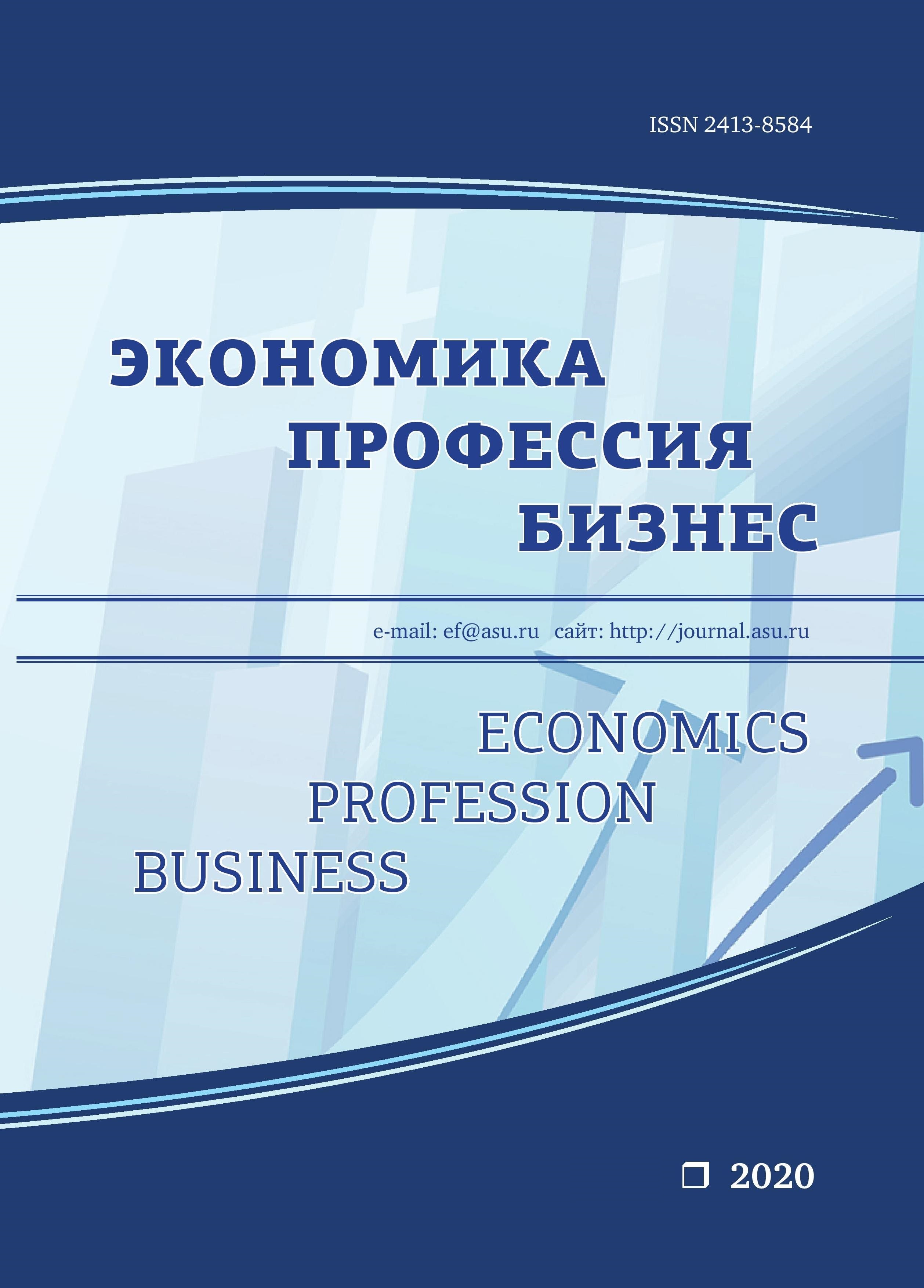IMPROVEMENT OF WAGE SYSTEM IN HEALTH CARE AS A FACTOR IN INCREASING THE ECONOMIC SECURITY OF THE REGION
УДК 332.1
DOI:
https://doi.org/10.14258/epb201997Keywords:
wage system, wages, wage framework, regional healthcare, economic security, social securityAbstract
The article considers the problems in regional healthcare wage system. It is found that the persistent imbalance between income and expenses formed against the background of increased funding of the public health. It is noted that the main item of expense of medical organizations is the wage fund, which remains understudied.
The high share of labor costs, low level of wages in the industry compared to neighboring entities, wage differentials, erratical wage framework and low share of the guaranteed part of wages, overloading of the wage system and low level of automation of information systems are highlighted as major issues. At the same time, in the author’s view, the healthcare wage system that meets modern requirements is the key to the economic and social security of the region and the state.
The regional healthcare wage system needs to develop new approaches. According to the author, it is required to build a wage system according to a hierarchical type, depending on the level of the medical organization, based on the central place theory and the development of inter-municipal cooperation.
The analysis is based on statistical and analytical data for the last 5 years, as well as methods of dynamic and structural analysis, measuring the achievement of targets and integrated approach.
Downloads
References
Здравоохранение в России. 2019: статистический сборник / Росстат. М., 2019. 170 с.
Федеральная служба государственной статистики: Официальный сайт. URL: http://www.gks.ru/ (дата обращения: 09.04.2020).
О мероприятиях по реализации государственной социальной политики до 2030 года: Указ Президента РФ от 07.05.2012 № 597. URL: http://www.consultant.ru/ (дата обращения: 04.03.2020).
Совещание по вопросам модернизации первичного звена здравоохранения: Официальный сайт Президента России. URL: http://kremlin.ru/events/president/news/61340/ (дата обращения: 07.04.2020).
Единые рекомендации по установлению на федеральном, региональном и местном уровнях систем оплаты труда работников государственных и муниципальных учреждений на 2019 год. URL: http://www.consultant.ru/ (дата обращения: 12.02.2020).
Кадыров Ф. Н. О некоторых проблемах совершенствования оплаты труда в здравоохранении // Менеджер здравоохранения. 2014. № 10. С. 59-64.
Cashin С., Chi Y.-L., Smith P. C., Borowitz M., Thomson S. Paying for Performance in Health Care. Implications for health system performance and accountability. McGraw-Hill, 2014. 312 p.
Eijkenaar F., Emmert M., Scheppach M., Schoffski O. Effects of pay for performance in health care: a systematic review of systematic reviews // Health Policy. 2013. Vol. 110, Iss. 2-3, Pp. 115-130. DOI: 10.1016/j. healthpol.2013.01.008/
Kovacs R. J., Powell-Jackson T., Kristensen S. R., Singh N., Borghi J. How are pay-for-performance schemes in healthcare designed in low — and middle-income countries? Typology and systematic literature review // BMC Health Services Research 2020. Vol. 20, Article number: 291. DOI: 10.1186/s12913-020-05075-y/
REFERENCES
On the Economic Security Strategy of the Russian Federation for the period up to 2030. Decree of the President of the Russian Federation of 05.13.2017 No. 208]. URL: http://www.consultant.ru/ (date of access: 04.03.2020).
Healthcare in Russia. 2019. Statistical compilation. Moscow, 2008. 170 p.
Federal State Statistic Service. Official site. URL: http://www.gks.ru/ (date of access: 09.04.2020).
On measures for the implementation of state social policy until 2030. Decree of the President of the Russian Federation of 05.07.2012 No. 597. URL: http://www.consultant.ru/ (date of access: 04.03.2020).
Meeting on the modernization of primary health care. Official website of the President of Russia. URL: http://kremlin.ru/events/president/news/61340/ (date of access: 05.04.2020).
Unified recommendations on the establishment at the federal, regional and local levels of pay systems for employees of state and municipal institutions for 2019. URL: http://www.consultant.ru/ (date of access: 12.02.2020).
Kadyrov F. N. On some problems of improving wages in healthcare // Healthcare Manager. 2014. Vol. 10. Pp. 59-64.
Cashin С., Chi Y. L., Smith P. C., Borowitz M., Thomson S. Paying for Performance in Health Care. Implications for health system performance and accountability. McGraw-Hill, 2014. 312 p.
Eijkenaar F., Emmert M., Scheppach M., Schoffski O. Effects of pay for performance in health care: a systematic review of systematic reviews // Health Policy. 2013. Vol. 110. Iss. 2-3, Pp. 115-130. DOI: 10.1016/j. healthpol.2013.01.008
Kovacs R. J., Powell-Jackson T., Kristensen S. R., Singh N., Borghi J. How are pay-for-performance schemes in healthcare designed in low- and middle-income countries? Typology and systematic literature review // BMC Health Services Research. 2020. Vol. 20. Article No. 291. DOI: 10.1186/s12913-020-05075-y/
Downloads
Published
Issue
Section
License
Economics Profession Business is a golden publisher, as we allow self-archiving, but most importantly we are fully transparent about your rights.
Authors may present and discuss their findings ahead of publication: at biological or scientific conferences, on preprint servers, in public databases, and in blogs, wikis, tweets, and other informal communication channels.
Economics Profession Business (EPB) allows authors to deposit manuscripts (currently under review or those for intended submission to EPB) in non-commercial, pre-print servers such as ArXiv.
Authors who publish with this journal agree to the following terms:
- Authors retain copyright and grant the journal right of first publication with the work simultaneously licensed under a Creative Commons Attribution License that allows others to share the work with an acknowledgement of the work's authorship and initial publication in this journal.
- Authors are able to enter into separate, additional contractual arrangements for the non-exclusive distribution of the journal's published version of the work (e.g., post it to an institutional repository or publish it in a book), with an acknowledgement of its initial publication in this journal.
- Authors are permitted and encouraged to post their work online (e.g., in institutional repositories or on their website) prior to and during the submission process, as it can lead to productive exchanges, as well as earlier and greater citation of published work (See The Effect of Open Access).



